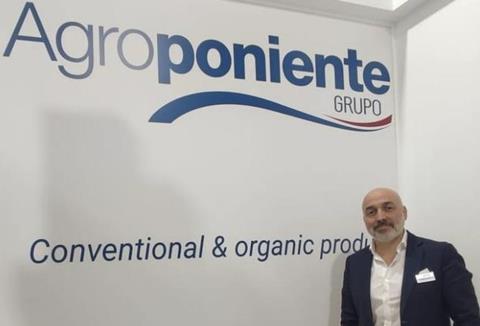Imanol Almudí, CEO of Almería’s Agroponiente Group, discusses the prospects for the new Spanish melon and watermelon seasons
After two seasons of low volumes due to adverse weather conditions, 2024 looks set to deliver a bumper melon and watermelon harvest in Spain thanks to favourable spring weather. Barring any unforeseen climatic events in the coming weeks, both yield and quality are expected to be high and all that remains is for temperatures to keep rising across Europe to activate demand.

Agroponiente Group has already started harvesting in Almería and will have availability right through to autumn thanks to its extensive geographical coverage spanning different parts of the country. CEO Imanol Almudí says he is optimistic about the new season.
“Expectations are positive, although it is not easy to predict what will happen to prices, since they depend on multiple factors,” he tells Fruitnet. “The quality of the product suggests that demand will be strong, but this is something that will have to be confirmed in the coming months.”
Maintaining quality levels throughout the season is fundamental to Agroponiente’s strategy. “This starts with the right choice of varieties and involves working closely with seed companies and growers throughout the entire production cycle and, crucially, ensuring fruit is harvested at the optimal time,” Almudí says.
The company markets its melons and watermelons under several well-recognised brands, including Gold Quality and Fashion for watermelons and Bombón de Agroponiente and Fruish for melons. “We work continually to ensure our offer keeps pace with changing market demands, both in fruit terms of size and packaging format, as well brand image,” Almudí continues.
Water scarcity is one of the biggest challenges facing the sector, and one which particularly affects many of Spain’s key melon and watermelon-producing regions. As part of its ‘conscious agriculture’ strategy, Agroponiente ensures that it doesn’t waste a drop of this valuable resource, with group-wide policies covering all processing, from irrigation control to reducing maximum water usage across farms in Almería, Murcia, Granada, Seville, Córdoba, Southern Portugal, La Mancha, Toledo and Castellón.
Almería is the main watermelon producing province in Spain, with almost 11,000ha of plantings producing 625,195 tonnes in 2023. Exports last year totalled 323,000 tonnes, of which almost half went to Germany and the rest to other markets across Europe.



